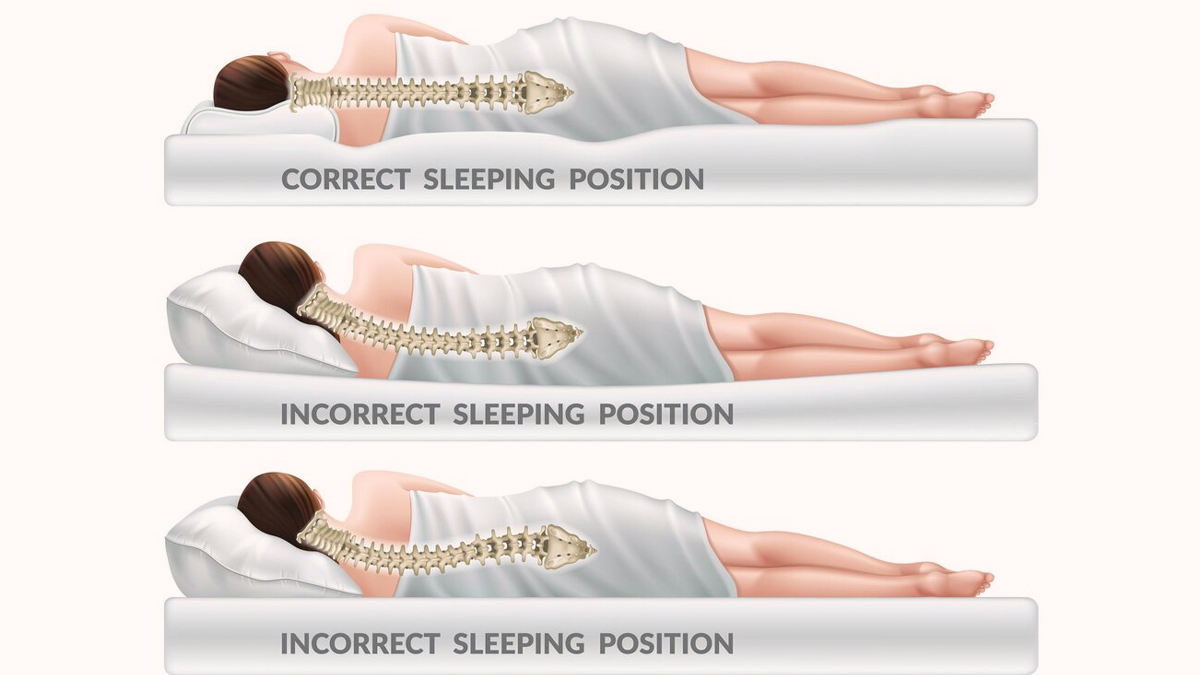
Do you wake up with a stiff neck or lower back pain? Your sleeping position might be to blame. Stomach sleeping, a favourite for many, could secretly harm your spine. While it may feel comfortable at the moment, research shows this position forces your neck and back into unnatural angles, leading to long-term issues like chronic pain and poor posture. But why is stomach sleeping so risky? And how can you fix it without sacrificing comfort?
Table of Content:-
An expert breaks down the science behind spinal alignment during sleep, shares the risks of stomach sleeping, and offers simple fixes to protect your neck and back. Spoiler: A small change in your bedtime routine could save you years of aches!
Why Stomach Sleeping Hurts Your Spine
View this post on Instagram
Dr Anuj Kumar Kadian, Orthopedic Surgeon, Newlife Multispeciality Hospital and Trauma Centre, Gurugram, warns: “Stomach sleeping is the worst position for spinal health. It misaligns your neck and lower back, stressing joints and muscles all night.”
Here’s what happens when you sleep face-down:
- Neck Strain: You twist your head sideways to breathe, overstretching neck muscles.
- Lower Back Stress: Your spine sinks into the mattress, losing its natural curve.
- Restricted Breathing: Pressure on the chest limits lung expansion.
- Spine misalignment during sleep can lead to chronic disc issues over time.
Major Risks of Stomach Sleeping

1. Chronic Neck and Back Pain
Sleeping with your head turned sideways strains neck ligaments. Dr Kadian explains: “Imagine holding your neck twisted for 8 hours, it’s like a slow-motion injury.”
2. Poor Posture
The expert suggests that stomach sleepers are 3x more likely to develop hunched shoulders and forward head posture.
3. Nerve Compression
Pressure on nerves in the lower back can cause tingling or numbness in the legs (sciatica).
ALSO READ: Keeping Your Wallet in Back Pocket and Sitting On It? Here Is How It May Be Dangerous
What Science Says About Sleep Positions
A study published in the Journal of Orthopedic Research tracked 500 adults for a year. Stomach sleepers reported:
- 65% more neck pain than back/side sleepers.
- 40% higher risk of morning headaches.
- Poor sleep quality due to frequent repositioning.
How to Stop Stomach Sleeping

Dr Kadian’s top tips to break the habit:
1. Switch to Side or Back Sleeping
- For side sleepers: Place a pillow between knees to align hips.
- For back sleepers: Use a thin pillow under the neck (not the head).
2. Use the Right Pillow
- Memory foam pillows cradle your neck’s natural curve.
- Avoid thick pillows that push your head forward.
3. Train Your Body
- Sew a tennis ball to the front of your pyjama top—it’ll make your stomach sleeping uncomfortable.
- Start by napping in the correct position.
4. Stretch Before Bed
- Do cat-cow stretches to relax your spine.
- Roll your shoulders back 10 times to improve posture.
When to See a Doctor
-1743506097548.jpg)
Consult an orthopaedic specialist if you notice:
- Pain lasting over 2 weeks.
- Numbness/tingling in arms or legs.
- Trouble moving your neck after waking.
ALSO READ: Why Do Wrists Hurt After Waking Up In The Morning? An Expert Explains The Reason
Conclusion
Stomach sleeping might feel comfortable at the moment, but it can lead to long-term back and neck problems. However, small changes like switching to side sleeping or using a supportive pillow can make a big difference. Listen to your body, if you wake up with stiffness or pain, it might be time to adjust your sleep position. Remember, quality sleep isn't just about quantity; it's about giving your spine the proper support it needs.
Also watch this video
How we keep this article up to date:
We work with experts and keep a close eye on the latest in health and wellness. Whenever there is a new research or helpful information, we update our articles with accurate and useful advice.
Current Version